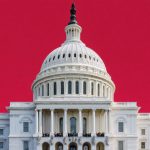
Data Protection Showdown! New Leader Sparks Controversy in EU
Wojciech Wiewiórowski’s Nomination Raises Eyebrows
In a surprising turn of events, European Union governments have officially backed Wojciech Wiewiórowski for another term leading the European Data Protection Supervisor. This decision, however, has not come without contention, as it directly conflicts with the recent choice made by EU lawmakers, who have expressed their preference for Bruno Gencarelli to take the reins.
The appointment of Wiewiórowski comes amid increasing scrutiny over data privacy regulations across Europe. Having previously held the position, Wiewiórowski is no stranger to the challenges that lie ahead. His supporters in government praise his dedication and insight into data protection matters, highlighting his previous accomplishments in the role.
On the flip side, the lawmakers’ endorsement of Gencarelli reflects a significant division within the EU’s decision-making bodies. Gencarelli’s advocates argue that his experience would bring fresh perspectives to the role, essential in navigating the complex landscape of data privacy.
Now, the stage is set for a potential clash between the chosen nominees and the governing bodies. The situation underscores the ongoing debates surrounding data protection measures necessary for safeguarding citizens’ rights in an increasingly digital world. As tensions rise within the EU, the outcome of this leadership contest could have profound implications for the future of data privacy legislation.
Implications of Wojciech Wiewiórowski’s Nomination
The nomination of Wojciech Wiewiórowski as the European Data Protection Supervisor not only highlights internal divisions within the EU but also underscores wider implications for data privacy laws globally. As the digital landscape rapidly evolves, countries are grappling with the need for regulatory frameworks that protect citizens’ information while promoting innovation. Wiewiórowski’s reappointment could signal a continuity of existing policies that prioritize strict data regulations; however, this may also invoke criticism from tech companies and industry stakeholders who advocate for a more balanced approach that fosters growth.
Potential environmental effects arise from the growing reliance on data centers and online services, which require significant energy resources. The implications of stringent data protection measures could inadvertently drive companies to adopt less sustainable practices if compliance costs escalate. As industries pivot toward sustainable practices, a stalemate in data legislation could stall initiatives aimed at reducing carbon footprints.
Looking forward, the outcome of this leadership dispute may elucidate emerging trends in data governance and lead to paradigm shifts in how data privacy is prioritized worldwide. The growing interdependence of global economies and the digital sector necessitates robust dialogue on data rights, reflecting how cultural values influence regulatory priorities. The significance of Wiewiórowski’s tenure may extend beyond EU borders, potentially shaping how countries worldwide navigate the delicate balance between data protection and economic advancement.
Data Privacy Showdown: Wojciech Wiewiórowski vs. Bruno Gencarelli
Divergence in Data Protection Leadership within the EU
In a surprising political twist, Wojciech Wiewiórowski has received the endorsement of European Union governments for another term as the European Data Protection Supervisor (EDPS). This decision has sparked significant debate, particularly as it stands in opposition to the clear preference expressed by EU lawmakers for Bruno Gencarelli, who is seen as a fresh face in the realm of data privacy.
The Context of the Nomination
Wiewiórowski, known for his deep understanding and commitment to data protection, has previously held the EDPS position. Supporters commend his track record in enhancing data privacy regulations and ensuring compliance across EU member states. His familiarity with the evolving data landscape positions him as a steady choice amid rising concerns regarding digital security and privacy breaches.
Conversely, Gencarelli’s proponents advocate for his vision and innovative approach to data protection challenges. They argue that his experience with the European Commission allows him to propose necessary reforms tied to modern technology and user rights, which may be more crucial than ever in our increasingly interconnected world.
This power struggle between two candidates reflects deeper issues within the EU regarding governance and decision-making. It raises significant questions about the future direction of data protection laws as the digital environment continues to expand.
Pros and Cons of Each Candidate
Wojciech Wiewiórowski
Pros:
– Extensive experience in the role of EDPS.
– Proven accomplishments in enhancing data privacy.
– Strong relationships with member states, facilitating cooperation.
Cons:
– Critics argue that his leadership may lack the innovative approach needed for contemporary challenges.
– Perceived as too much of a status quo candidate in a rapidly changing digital landscape.
Bruno Gencarelli
Pros:
– Fresh perspective with potential for innovative reforms in data protection.
– Strong ties to the European Commission, enabling a thorough understanding of legislative processes.
– Advocates argue he may more effectively engage younger, tech-savvy demographics.
Cons:
– Less experience in a singular supervisory role may lead to steep learning curves.
– Potential pushback from established entities used to Wiewiórowski’s leadership style.
The Implications for Data Privacy Legislation
The outcome of this nomination battle is crucial. Should Wiewiórowski remain in his position, it might signal continuity and an emphasis on reinforcing existing data protection frameworks. Conversely, if Gencarelli prevails, it could usher in a significant shift in policy, prioritizing innovative approaches to data ethics and user rights in a digital age.
Predictions for the Future
As Europe grapples with balancing innovation and privacy rights, the resolution of this leadership conflict may resonate beyond the confines of the EU. With ongoing discussions about data protection, cybersecurity measures, and the fundamental rights of citizens, this process will likely set precedents for how data privacy is managed on an international scale.
Key Takeaways
– The contention between Wiewiórowski and Gencarelli illustrates the vibrant and often divisive nature of EU policy-making regarding data protection.
– Stakeholders across Europe will be keenly observing how this leadership outcome influences future legislation, especially with current challenges such as artificial intelligence, digital marketing, and personal data usage on the rise.
– The final decision will not only shape the future of data privacy in Europe but could also impact how global standards for data protection are established and followed.
For more in-depth information on current EU data protection policies, visit EU Europa.

















